noahspud
I've been writing since fourth grade and blogging since 2014. I've been a nerd my whole life.
Correspondent I
- Plebian Penman
- Common Writer
- Aristocratic Author
- Lurker
- Pssst
- Hand Raiser
- Sharp-Eyed Citizen
- Town Watch
- Detective Deskman
- Actor
- Fanboy
- Article of the Month
- ?
- Articles
13 - Featured
13 - Comments
129
- Ext. Comments
39 - Processed
30 - Revisions
27
- Topics
27 - Topics Taken
14 - Notes
40
- Topics Proc.
30 - Topics Rev.
4
- Points
4409 - Rank
31 - Score
2183
Latest Articles
Latest Topics
Why Are There So Many Neurodivergent Super-Detectives?The list of fictional characters with relatable representation of neurodivergence (ADHD, autism, OCD, et cetera) has a lot of detective characters on it. Examples include Sherlock Holmes, Hercule Poirot, Benoit Blanc, Adrian Monk, Shawn Spencer, and Sonja Cross from The Bridge. |
Dirk Gently's Holistic Detective Agency: Hard to Adapt?Douglas Adams’ foray into detective fiction, with his iconic twist of science fiction and extremely British absurdist comedy, was a novel called Dirk Gently’s Holistic Detective Agency and its sequel, The Long Dark Tea-Time of the Soul. These books have been adapted into two TV shows, one on BBC4 and one on BBC America. The books and TV shows are all quite different from each other; even the character of Dirk Gently changes a bit between adaptations. |
The Red Ten vs The BoysFrom 2011 to 2017, Tyler James and Cesar Feliciano created a ten-issue comic book series in which a parody of the Justice League were mysteriously murdered in a plot eerily similar to Agatha Christie’s And Then There Were None. As in Christie’s novel, it was slowly revealed that the superheroes were being killed because they were guilty of dark secrets. |
"Gods" in the MCU: Are Any of Them Worthy?In Thor: Love and Thunder, Gorr the God Butcher wanted to destroy all the deities in the MCU. His motivation was he had found the god of his civilization quite disappointing, and he assumed all deities were just as selfish and uncaring. The movie hoped the audience would think Gorr was wrong because Thor, the god of Thunder, is not selfish. Unfortunately, we have not met many other "god" characters in the MCU with redeeming qualities. |
Do Disabled Characters Need to be Played by Disabled Actors?Movies and TV shows often feature able-bodied actors/actresses playing disabled characters. Some audience members with disabilities are not content to see characters who are like them; some of them believe these characters must be played by people who actually have the disability they are portraying. Discuss the validity of this argument and the validity of the counterargument: representation doesn’t matter any less if it’s just acting.
|
The Power of Movie Musical ProtagonistsIn the world of movie musicals and musical episodes of TV shows, characters process their emotions and make decisions through song-and-dance numbers. The protagonists of these stories often seem to have an uncanny ability to influence people around them and make them break into song and dance. In Encanto, Mirabelle’s gift seems to be making her family sing about their feelings, especially when they don’t want to talk about them: she makes Luisa admit she’s nervous about the Pressure, she gets the whole family to sing about Bruno, etc. In The Greatest Showman, P.T. Barnum uses the power of song-and-dance to turn his group of social outcasts into the greatest show on Earth and to convince Zac Efron’s character to join his team. If the songs are diegetic (the characters are aware they are singing and dancing), they are conscious choices by the characters, so they can be considered part of the characters’ development. If the songs are non-diegetic (only the audience is aware of what’s happening), they are mainly plot devices. Other examples include Zooey’s Extraordinary Playlist, The Flash/Supergirl crossover "Duet," and The Magicians’ annual musical episodes. Analyze the narrative impact of these characters and their musical influence. Does this phenomenon work better as character development, a plot device, or a combination of both?
|
Mario, Link, and Scott Pilgrim: Relationships in Video GamesScott Pilgrim vs The World uses a video-game-like series of boss battles as a thinly veiled metaphor for relationship drama. It has been compared to Mario’s video game series, in which the hero fights giant gorillas and dragon turtles in order to win back his lady love. The Legend of Zelda is another famous example of this trope. What other video games and game-related movies portray relationships with this kind of drama? What are the pros and cons of the different portrayals? Are these relationships healthy? If not, is that made clear enough to dissuade people from following their example?
|
The Hulk's Character Development (or lack thereof)The Incredible Hulk is the movie most likely to be forgotten when thinking about the MCU. Arguably, its poor reception is the reason Mark Ruffalo has yet to get his own Hulk movie. Because Hulk/Bruce Banner doesn’t get solo movies like Iron Man, Captain America, and Thor, all of his character development has to happen in the Avengers movies and Thor: Ragnarok. Analyze what arc or Hero’s Journey he has, if any. Perhaps compare his arc to that of other Avengers.
|
Latest Comments
| Villains of the Shrek Universe: From Nursery Rhymes to the Grim Reaper | |
He takes his job a little more seriously than necessary in special cases. Is that evil? It’s just vague enough to be interesting, which is one of the things that makes him a great villain. | Villains of the Shrek Universe: From Nursery Rhymes to the Grim Reaper |
See also Dimension 20 Neverafter, in which the Big Bad Wolf is the manifest representation of Endings. Like, the words “The End” grew legs and sharp teeth. Arguably worse than death in a world where everyone acknowledges the fact that they’re fictional characters. | Villains of the Shrek Universe: From Nursery Rhymes to the Grim Reaper |
Not much did change. That’s the point. Wakanda promised to share their world-changing resources with the world, but then a lot of things happened… Wakanda doesn’t trust the world, and the world keeps proving them right. The MCU keeps giving Wakanda excuses to maintain the status quo. | Why Don't Superheroes Change the World? |
Those who learn from the mistakes of their ancestors are doomed to watch in horror as other idiots repeat them. | "Darkest Dungeon": The weight of legacy |
Yup. That’s called “raising the stakes.” Lots of stories do that – Star Wars, the Matrix, and the Hunger Games all start with the bad guys already in control, putting the heroes at a disadvantage. This makes it even cooler when the heroes win. | Villains of the Shrek Universe: From Nursery Rhymes to the Grim Reaper |
How about Fender’s Dance Battle in Robots? In the world of a comedy movie, especially an animated one, anything unexpected and funny becomes super-powerful. | Exploring the Sensual Power of Dance in Cinema |
True. She still values one person’s happiness above the well-being of everyone else – it just happens to be her son instead of herself. | Villains of the Shrek Universe: From Nursery Rhymes to the Grim Reaper |
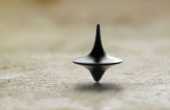
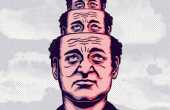
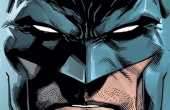
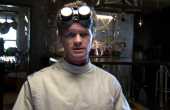
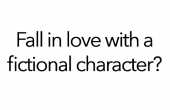
Oh yeah. Throwing acid on his employees as opposed to just not providing dental insurance. Rewriting reality so no one knows things used to be different as opposed to just changing the way things are going forward. Rumpel raises the stakes.